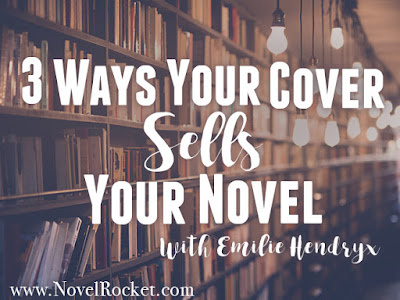I've been doing a newsletter for my readers for years and have seen many, many writers and authors ask such things as:
- Do I need to do a newsletter?
- Why is it important?
- What would I put in it?
- How do I do it?
Each of these topics could easily fill a post, so I'll answer two in this post and two next month. But don't take my advice as gospel truth, or the whole truth--I can only share what I've learned and I certainly haven't learned everything; moreover, some authors might be so dang successful (or have additional experience) that, for them, it precludes the need or desire to have a newsletter. Most authors can benefit from offering one, however, and it is to them I address the following.
Do I Need a Newsletter?
If you want to keep in touch with readers in a way that Facebook, Twitter, Instagram and other social media aren't conducive to, yes. In other words, if you want to reliably share more with readers than what you can fit into a short post, a Tweet, or other interfaces. (Blogs can fit more and, in some cases, may substitute for a newsletter, but they have one major drawback, which I'll address in a moment.)
Why Is It Important?
None of us control Facebook and Twitter. They could choose to erase your account (it has happened to some!) have a glitch and lose your "following," or decide one day not to allow fan pages--who knows? Even more to the point, you can't message all your Facebook contacts at once, and if you're smart you wouldn't want to. Most "friends" aren't your target audience. Even those who join your fan page may not ever see your latest post. Facebook isn't set up to help you reach the masses. (Advertising is different.)
The same is true for Twitter followers. Don't spend enormous amounts of energy trying to grow a following. Twitter has its place in a good marketing plan, but most followers are not targeted. Like Facebook, most of them aren't particularly interested in your books or what you have to say. When you send a marketing tweet out there, it's like casting a line into the ocean. Sure, you might snag a fish or two--I've done it. But it's a heck of a lot easier to get bites in a pond you've stocked yourself. Essentially, your mailing list is a stocked pond. (Hash tags try to get your Tweet into Twitter's stocked pond, but it's still ocean-sized.)
I have a blog. Isn't that good enough?
 |
An example from one of my past issues.
You just can't fit all this stuff in a post.
(Don't worry--I like things pretty,
but your newsletter can be single column, text only!)
|
Blogs are great to reach more people, but here's the drawback for authors. Like with FB and Twitter, you don't control the platform. You can't see who your readers are; you can't reach them individually or set them up into sub-groups (such as, Influencers, Launch Team, etc.).
When you have your own mailing list, you can see who is subscribed. You can send to all of them or to any sub-set of them whenever you need to. You can tailor your content to include much more than what is appropriate for a single blog post, too. Finally, (and this may be available on some blog platforms) you can track every click each mailing gets. Want to know how many took you up on your free offer? Any good service provider will track that. How many clicked through to your book page on Amazon? It's in the stats. You can even see who opened your mailing--and who didn't.
All of that information is helpful. It teaches you what works, and what doesn't.
There are strong reasons to be involved in Facebook, on Twitter and other social media. Each "tool" in your marketing plan has its use. But having your own mailing list is something that stays with you over time--no one else can shut it down but you. Another key difference is that everyone on your list has given you permission to contact them. You're not just throwing a line into the ocean. To put it another way, social media works best as a "one-to-one" reach, whereas a mailing list is a mass strategy.
Next month: What Would I Put in a Newsletter? And, How Do I Do It?
Post Scriptum for those interested: My newsletter archive isn't complete, but you can see actual examples of past illustrated issues
HERE--without subscribing.
Linore Rose Burkard wrote a
trilogy of genuine regency romances
for the Christian market before there were any reg

encies for the
Christian market. Published with Harvest House, her books opened up the genre for the CBA. She also
writes YA Suspense/
Apocalyptic fiction as L.R. Burkard.
Married with five children, she home-schools her youngest daughter,
preferably with coffee in one hand and iPad in the other. Her latest
PULSE EFFEX SERIES, takes readers into a "chilling possible future for America."






























